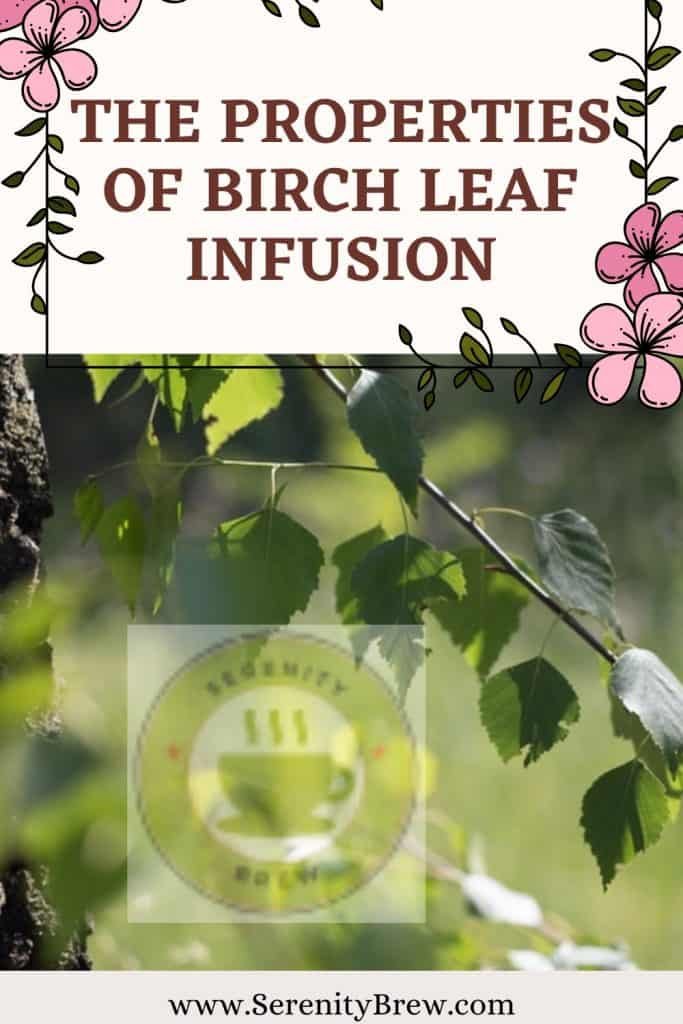
Experts in natural medicine usually advise the consumption of birch leaf infusion to relieve the symptoms of colds and also to prevent them due to its vitamin C content.
It is worth noting that this drink has been used for hundreds of years to treat all kinds of ailments. Now, does it really work? And how is it prepared? Keep reading because we will tell you everything about the infusion of birch leaves.
The birch
The birch, or betula, is a tree of the Betulaceae family native to the countries of the northern hemisphere, that is, Europe, Asia and North America. It is a deciduous plant of which there are different species that can reach 30 meters in height.
It stands out for its simple, 3- to 6-centimeter rhomboid leaves, its whitish bark, and its beautiful green or yellow flowers.
As pointed out by the National Association of Professionals and Autonomous Natural Therapists, both the leaves and the bark of this tree are used to prepare different natural remedies that serve to relieve cystitis, purify the body or as an antiseptic.
Health benefits of birch leaf tea
As we always tell you in Infusionismo, there are many infusions to which beneficial properties for health are attributed. However, the scientific data is often inconclusive. Join us to find out what the birch leaf infusion is for and if there are any studies on it.
It is diuretic
This infusion has been used for hundreds of years to help the body eliminate fluid retention due to its diuretic effect. Thus, it would be useful in cases of gout or rheumatism, two diseases whose symptoms worsen due to the accumulation of fluids.
Relieves urinary infections
Thanks to its diuretic effect and antibacterial property, it would be a good idea to drink birch leaf infusion to treat cystitis. When ingested, it would help eliminate bacteria through urination.
Antithermal properties
Birch leaves contain different essential oils, including betulinol, a substance that is believed to act by lowering body temperature. However, we have not found scientific data in this regard.
Healing effect
Birch leaves have been used topically for many years to help heal wounds. For this reason, it is inferred that it would serve to heal small wounds in the mouth, such as canker sores, when consumed as an infusion.
Relieves headaches
Do you regularly suffer from migraines or headaches? Birch leaf infusion may be what you need to relieve these pains as it has anti-inflammatory effects.
It is antioxidant
Birch leaves include flavonoids among its components, substances with known and proven antioxidant properties. Remember that antioxidants are responsible for fighting free radicals, molecules that cause oxidative damage in the body.
When oxidative damage occurs, different degenerative diseases can develop, such as Alzheimer’s, heart problems or cancer, and even premature aging.
How to prepare a cup of infusion of birch leaves

You can buy birch leaves at your trusted herbalist. There, they will sell them to you by weight. Another option is to collect the leaves yourself. In that case, it is important that you are 100% sure that the tree in question is a birch.
Once the tree is recognized, choose the whole leaves, without breaks or pecked by birds. Wash them well and dry them with a cloth. Then lay them out on a flat surface and let them dry in the sun. Store your leaves in a well-closed jar, sheltered from light and heat, to prevent the leaves from losing their properties.
Ingredients
- 2 teaspoons of dried birch leaves
- 1 cup of water
Elaboration
- Bring the water to a boil.
- Add the leaves and decoction for 5 minutes.
- Turn off the heat and let stand for 5 more minutes.
- Strain and drink.
Of course, you can add honey to the birch leaf infusion if you find it too bitter. In general, it is a bitter infusion, perhaps too bitter for most people. You can also mix birch leaves with mint leaves for a more palatable infusion.
In any case, the birch leaf infusion will help you stay healthy and strong, preventing diseases, fighting fluid retention and, therefore, losing weight.
